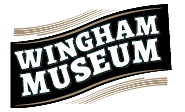Journal #61 – December 2019
German Immigration in the Manning Valley: Part 1
This article focuses on the German immigration to the Manning Valley, the largest non-British non-English speaking group to settle in this area. In Part 1 we look at the following families: Ahronson, Calov,Cluss, Geiss, Ochs, Paff, Ruprecht, Schlenert, Schubert, Weismantel, Wolff, Zeininger. In Part 2 we will look at Haug, Kitz, Lilier, Unger, Weber, and the growth of all German families in the Valley. This is by no means a complete list of German immigrants to the Manning Valley, but their selection was determined by the available source material.
Assistant Station Master at Mount George, 1961
Earlier this year Lindsay Gardiner’s book ‘Mount George Rail Station in the 1960s’ was launched at the museum. It contains his reminiscence of his days at Mount George as a young Assistant Station Master. Here we present a few extracts from his delightful book.
John Alden: Shakespearean Actor and Producer
Born at Coopernook in 1908, Gordon Buchanan adopted the stage name of John Alden, and became Australia’s leading Shakespearean actor and producer. He appeared in many stage plays, was heard in numerous radio plays, as well as acting in the odd film. But his first love was Shakespeare. He formed a Shakespearean company and toured throughout Australia.
The First Schools in the Manning Valley Part 2: 1857 – 1864
In 1848, the Board of National Education was established in the colony of New South Wales to open secular national schools (now called public schools). Although support for the church-established schools continued, the new national schools flourishing under the National School Board. In Part 1, we looked at the schools established in the Manning Valley in 1850 – 1856, and here we look at the next 10 schools, 1857 – 1864.
School Reports 1868
Part of the School Inspector’s job required him to visit each school in his area at least once a year in order to conduct examinations of both pupils and teachers. He was then required to write reports of these, which were then often printed in newspapers. They could be a brutally frank assessment of the teaching.
‘Rithmatic
In the “Good Old Days”, when there were no electronic calculators, you needed to know your multiplication tables to solve arithmetical problems. Here is a problem solved by Henry Weismantel, aged 14, in 1906. The school was known as Weismantel (near Monkerai) and operated from 1898 to 1907.
Alexander Lobban Jnr: Colonial Teacher and Inspector
Gordon Dennes (1892 – 1976), born and raised in the Manning Valley, spent over forty years researching Manning Valley history. His special interest was the Scots who settle the Northern Rivers of NSW. The vast majority of his records were handwritten. – the writing of which can be difficult to read – and written on scrap paper, the back of forms, old letters, just about anything. His main source was newspapers, but some of the sources (e.g. Dungog Bench Book) are no longer available. He wrote numerous newspaper articles based on his meticulous research, but without citations, such as this (abridged)article on Alexander “Alex” Lobban Jnr, with whom he had a personal acquaintance. Much of this article was based on articles written by Lobban himself under a pen name of “Rustic” in 1910 – 1913.
Cost: $10.00 36 pages A4: 21cm x 29cm
